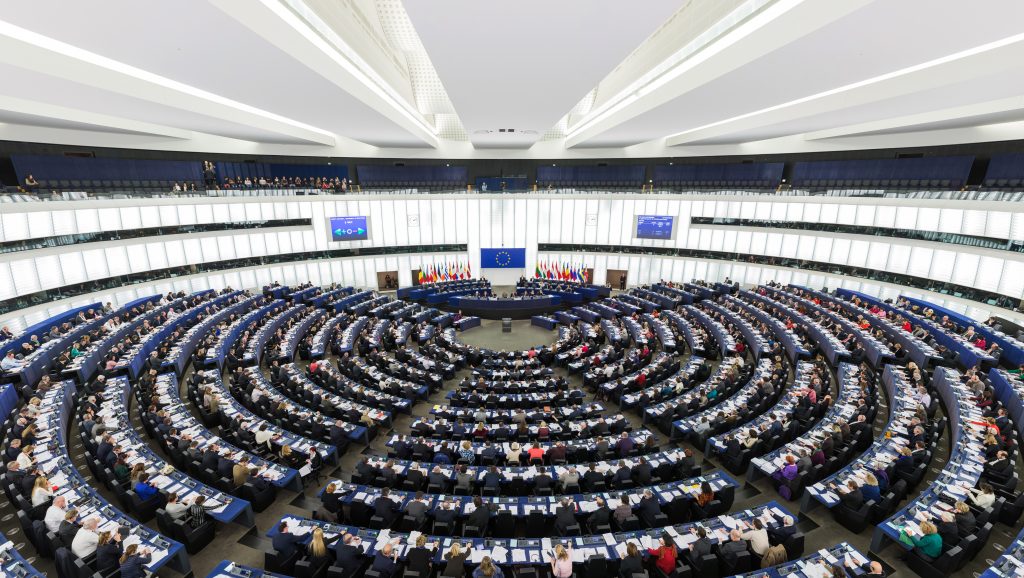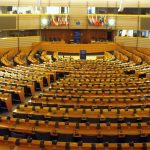Faced with a drop in citizens’ trust, the European Parliament, the European Commission, and the Council of the EU in September and October invited 800 randomly selected EU citizens to discuss topics important for the 27-member bloc in the European Parliament in Strasbourg.
A group of 200 citizens discussing European democracy, rule of law, and security gathered again from Friday to Sunday, but this time at an online panel, to formulate a proposal to be put forward to European institutions early next year.
“We will propose that citizens rather than professional politicians sit in the European Parliament. People elected directly by citizens,” said 67-year-old Croatian Vinko Sebešić, who took part in the panel.
EU citizens want a legislative framework for the introduction of direct democracy in the European Parliament and possibly other institutions as well.
“That is necessary due to the public’s distrust of politicians. That is the future of democracy,” he added.
The 200 citizens will get together again from 10 to 12 December in Florence where they will finetune the existing text and formulate a document to be sent to EU institutions for consideration.
The EP is the only EU institution elected directly by EU citizens, and based on Article 17 of the EU Treaty, it elects the European Commission President and confirms other EC members following a proposal by the European Council.
Trust in that process, however, was undermined also during the election of incumbent EC President Ursula von der Leyen, who was appointed even though the lead candidate of the winning group in European elections, the European People’s Party (EPP), was Manfred Weber.
It had been expected that as the EPP’s lead candidate, Weber would be nominated for EC President, however, Von der Leyen was eventually nominated in line with an agreement between EU countries’ leaders. The subsequent vote by the EP only confirmed the European Council’s choice even though many EP members had said that they would insist on the principle that the nominee for EC President should be the lead candidate.
Ultimately, each of those institutions is a result of citizens’ choice, either direct or indirect.
European Democracy and Demography Commissioner Dubravka Šuica last month promised that the EC would take into account citizens’ proposals when defining its policies after June 2022.
European citizens attending panel discussions in Strasbourg also objected against their treatment by politicians during a plenary session of the Conference on the Future of Europe, held in the EP in October, claiming that they had been invited to present their proposals but politicians did not hear them out.
EP member Guy Verhofstadt, one of the organizers of the meeting with citizens, said that at the next session in Strasbourg, set for December, there would be more time for politicians to hear citizens out after they formulate their proposals in greater detail.
Šuica and Verhofstadt have said that the Conference on the Future of Europe, a set of discussions involving EU citizens, is a unique project on the global scale, aimed at involving citizens in decision-making processes. It includes a digital platform where citizens and their groups from all EU countries can leave their comments.
Many, however, wonder if this is really about the inclusion of citizens or about “simulating democracy”.
“Citizens are rising against the oligarchy that uses representative democracy only as a fig leaf for the real power balance in European societies,” says political scientist Anđelko Milardović.
“Demands for introducing direct democracy have been growing louder as a response to the crisis of representative democracy,” he said.
Around 70% of EU citizens polled in August said they were not happy with the way the EU currently functions, shows a survey by the Ipsos pollster.
Next weekend, a new online panel will be held, to be attended by another 200 EU citizens who were among those who gathered in Strasbourg in October.
“We, too, will demand to take part in decision-making and follow the process in the future so that Croatian politicians cannot tell us that something is demanded by Brussels and we do not know for sure if that is so and why that is so,” said Croatian Dragan Volarević, who will participate in the panel.
Political scientist Milardović believes one way out could be a hybrid model of democracy – a combination of direct, representative democracy and democracy supervised by civil society.
The result would be greater political participation by citizens and control over the political oligarchy now in power, he says.
For more on politics, follow TCN’s dedicated page.









